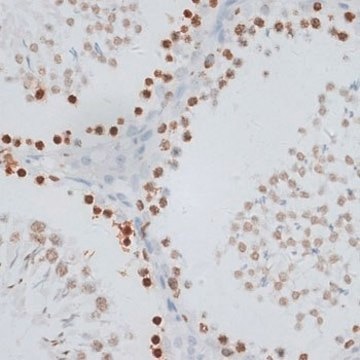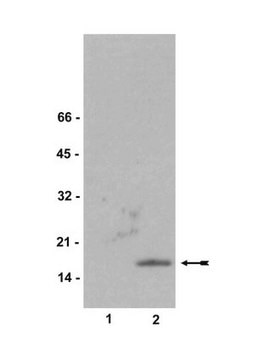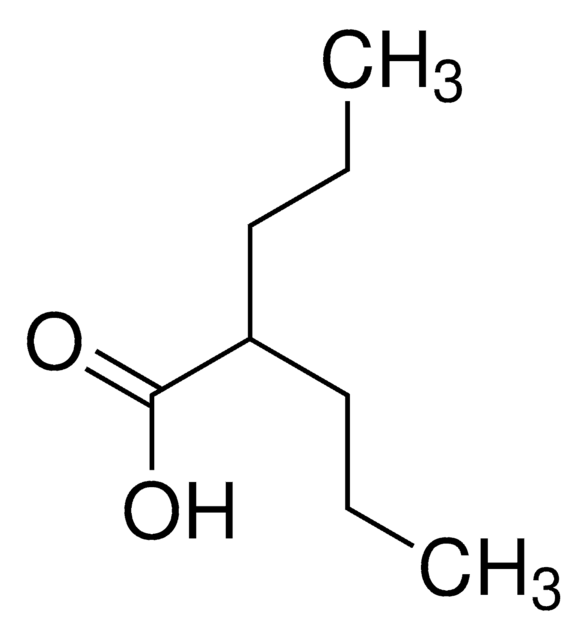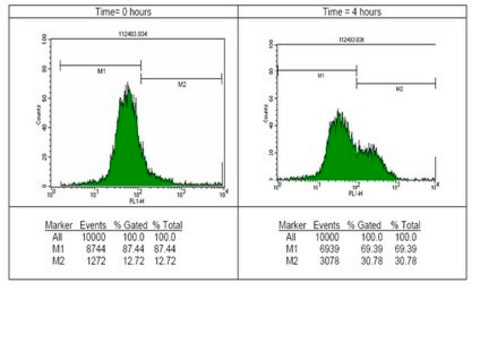ZRB1434
Anti-phospho-Chk2-Thr68 Antibody, clone 1B17 ZooMAb® Rabbit Monoclonal

recombinant, expressed in HEK 293 cells
About This Item
Recommended Products
biological source
rabbit
Quality Level
recombinant
expressed in HEK 293 cells
conjugate
unconjugated
antibody form
purified antibody
antibody product type
primary antibodies
clone
1B17, recombinant monoclonal
description
recombinant, expressed in HEK 293 cells
product line
ZooMAb® learn more
form
lyophilized
mol wt
calculated mol wt 60.92 kDa
observed mol wt ~60 kDa
purified by
using Protein A
species reactivity
human
species reactivity (predicted by homology)
monkey
packaging
antibody small pack of 25 μL
greener alternative product characteristics
Waste Prevention
Designing Safer Chemicals
Design for Energy Efficiency
Learn more about the Principles of Green Chemistry.
enhanced validation
recombinant expression
Learn more about Antibody Enhanced Validation
sustainability
Greener Alternative Product
technique(s)
affinity binding assay: suitable
immunohistochemistry (formalin-fixed, paraffin-embedded sections): suitable
western blot: suitable
isotype
IgG
epitope sequence
N-terminal
Protein ID accession no.
UniProt accession no.
greener alternative category
, Aligned
shipped in
ambient
storage temp.
2-8°C
target post-translational modification
phosphorylation (pThr68)
General description
Specificity
Immunogen
Application
Evaluated by Western Blotting in lysate from HeLa cells treated with UV light.
Western Blotting Analysis: A 1:1,000 dilution of this antibody detected Checkpoint kinase 2 (Chk2) in lysate from HeLa cells treated with UV light (50 milli Joules followed by recovery of 1 h), but not in untreated cells.
Tested applications
Peptide Inhibition Assay: Target band detection in lysate from UV light treated HeLa cells was prevented by pre-blocking of a representative lot with the phosphorylated Chk2-Thr68 peptide, but not the corresponding non-phosphopeptide.
Immunohistochemistry (Paraffin) Analysis: A 1:100 dilution from a representative lot detected phospho-Chk2-Thr68 in human colon cancer tissue sections.
Immunocytochemistry Analysis: A 1:100 dilution from a representative lot detected phospho-Chk2-Thr68 in HeLa cells treated with UV light.
Affinity Binding Assay: A representative lot of this antibody bound phospho-Chk2-Thr68 peptide with a KD of 2.5 x 10-7 in an affinity binding assay.
Note: Actual optimal working dilutions must be determined by end user as specimens, and experimental conditions may vary with the end user
Target description
Physical form
Reconstitution
Storage and Stability
Legal Information
Disclaimer
Not finding the right product?
Try our Product Selector Tool.
wgk_germany
WGK 1
flash_point_f
Not applicable
flash_point_c
Not applicable
Certificates of Analysis (COA)
Search for Certificates of Analysis (COA) by entering the products Lot/Batch Number. Lot and Batch Numbers can be found on a product’s label following the words ‘Lot’ or ‘Batch’.
Already Own This Product?
Find documentation for the products that you have recently purchased in the Document Library.
Our team of scientists has experience in all areas of research including Life Science, Material Science, Chemical Synthesis, Chromatography, Analytical and many others.
Contact Technical Service





